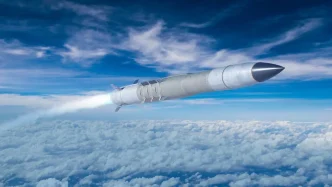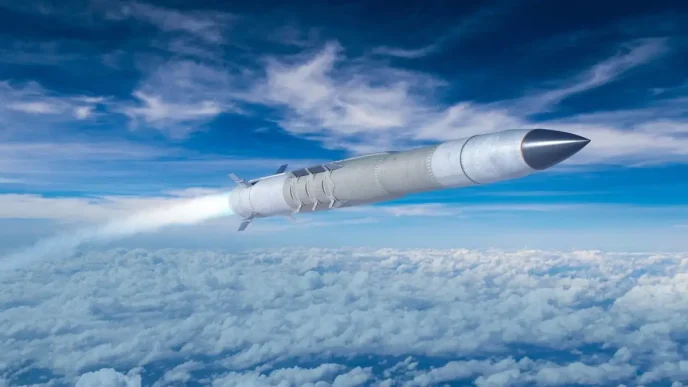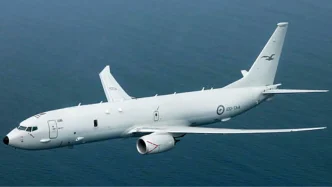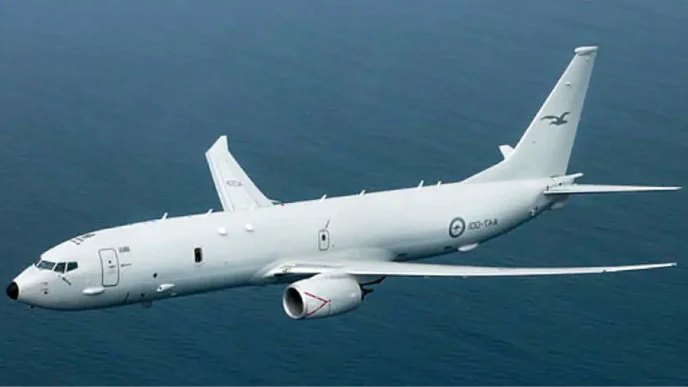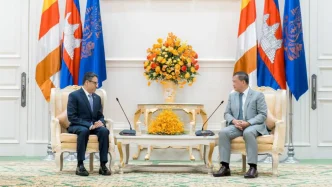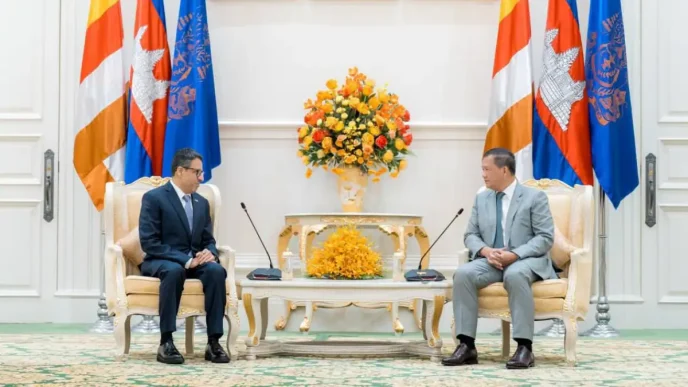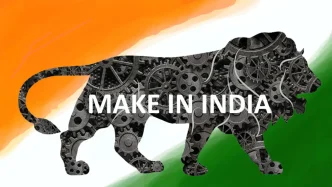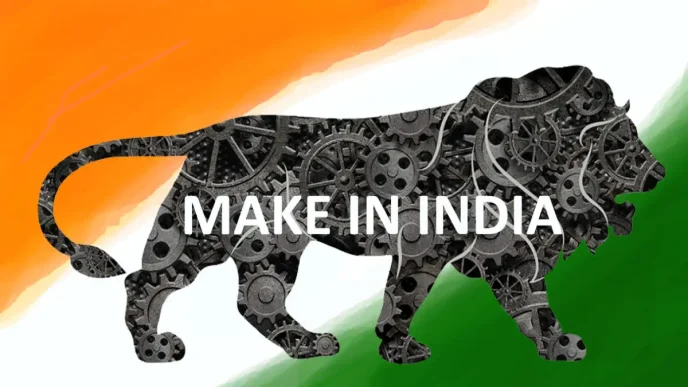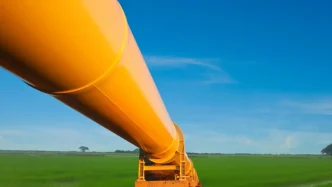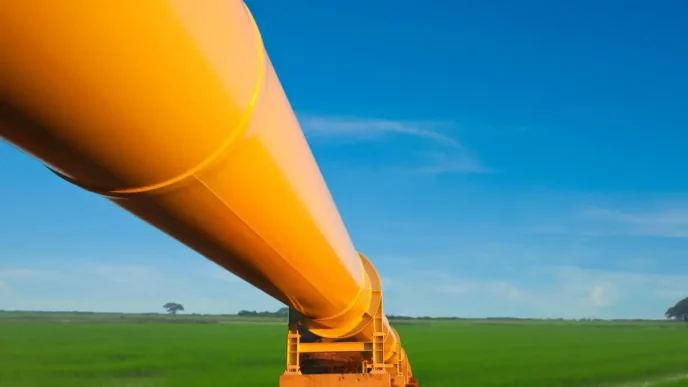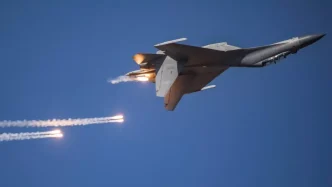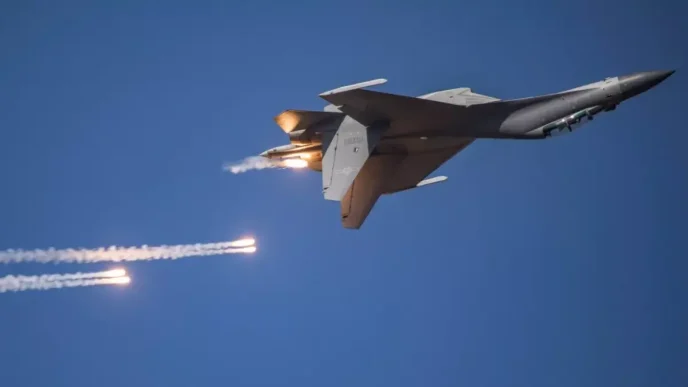In a significant step towards deepening bilateral relations, Vietnam’s Deputy Prime Minister and Foreign Minister Bui Thanh Son hosted UAE Minister of Investment Mohamed Alsuwaidi in Hanoi on Saturday, affirming Vietnam’s commitment to enhancing its comprehensive partnership with the United Arab Emirates (UAE). The meeting, marked by discussions on high technology, energy, and trade, signals a mutual ambition to elevate economic cooperation, with both sides eyeing ambitious targets and innovative projects.
The talks come on the heels of commitments made during Prime Minister Pham Minh Chinh’s visit to the UAE in October last year, reflecting a shared determination to translate high-level agreements into tangible outcomes. Welcoming Alsuwaidi’s visit and his new role overseeing bilateral cooperation, Son highlighted the importance of recent field trips by major UAE corporations exploring investment opportunities in Vietnam. These engagements, he noted, are concrete steps towards realising the vision set by the leaders of both nations.
A Shared Vision for Technology and Innovation
A key focus of the discussions was cooperation in cutting-edge sectors such as high technology and artificial intelligence (AI), areas of priority for Vietnam as it seeks to accelerate its digital transformation. Son urged continued coordination with the UAE on high-tech initiatives, including AI and data centre projects, which could position Vietnam as a regional hub for innovation. Alsuwaidi echoed this sentiment, expressing the UAE’s keen interest in these fields, alongside energy and logistics, and praising Vietnam’s increasingly attractive investment climate. The UAE’s growing interest is evident in the rising attention from its investors and investment funds, with several collaborative projects under discussion. While specific details remain undisclosed, the potential for partnerships in technology could mark a transformative phase in Vietnam-UAE relations, aligning with global trends towards digital economies. If successful, such initiatives may bolster Vietnam’s aspirations to become a leader in South East Asia’s tech landscape, though the scale and timeline of these projects remain to be confirmed.
Beyond technology, energy emerged as another critical area of collaboration. Son proposed that the UAE consider establishing a transit and storage centre for crude oil and petrochemical products in Vietnam, a move that could enhance the country’s role in regional energy supply chains. He also sought UAE support for Vietnam’s green transition, particularly in renewable energy initiatives, aligning with the nation’s commitments to sustainable development under its National Energy Development Strategy.
Trade Ambitions and Financial Hubs
Trade and logistics were high on the agenda, with both sides aiming to boost bilateral trade to US$20 billion, a target set by their leaders. To achieve this, Son called for the swift ratification and effective implementation of the Comprehensive Economic Partnership Agreement (CEPA), a framework designed to facilitate greater economic integration. The agreement, if finalised, could significantly enhance market access for Vietnamese goods in the Middle East and vice versa, though challenges such as regulatory alignment and logistical infrastructure may need to be addressed.
Vietnam also expressed interest in leveraging the UAE’s expertise as a leading regional financial hub to develop international financial centres and free trade zones within its borders. This ambition reflects Vietnam’s broader goal of modernising its economy and attracting global investment. Additionally, seaport development was flagged as a priority area, with Vietnam seeking to enhance its maritime infrastructure to support increased trade flows. Alsuwaidi welcomed Son’s upcoming visit to the UAE for the World Government Summit 2025, scheduled for 11-13 February, an influential platform that convenes government leaders, corporations, and scholars to discuss future governance and technological innovation. The visit is expected to provide an opportunity for both sides to refine their cooperation strategies and agree on key areas of focus. Such high-level engagements underscore the strategic importance both nations place on their partnership, particularly in a rapidly evolving global economic landscape.
Diverse Projects: From Football to Food Security
The meeting also yielded consensus on several specific projects that highlight the diverse nature of Vietnam-UAE cooperation. Among these is a UAE investment in a youth football academy for the Hanoi Police Football Club, a unique initiative that could foster cultural exchange and youth development through sport. While the details of the project are still emerging, it represents an innovative approach to bilateral ties, extending beyond traditional economic spheres.
Agricultural cooperation was another focal point, with discussions on UAE investments in rice cultivation in Vietnam to enhance food security in the Middle Eastern nation. Given the UAE’s reliance on food imports due to its arid climate, partnerships with agriculturally rich countries like Vietnam could play a critical role in ensuring stable supplies. For Vietnam, such investments offer an opportunity to boost its agricultural exports and strengthen rural economies, though the environmental and social impacts of large-scale cultivation projects would need careful monitoring.
Broader Implications for Regional Dynamics
The strengthening of Vietnam-UAE ties carries broader implications for South East Asia and the Middle East, regions increasingly interconnected through trade and investment. The UAE, with its strategic location and economic diversification efforts under initiatives like Vision 2021 and the Abu Dhabi Economic Vision 2030, serves as a gateway for Vietnam to access Middle Eastern markets. Conversely, Vietnam offers the UAE a foothold in South East Asia, a region of over 650 million people with growing economic potential.
This partnership also reflects Vietnam’s broader foreign policy of diversifying its economic partnerships beyond traditional allies. By engaging with the UAE, Vietnam is positioning itself as a dynamic player in global trade networks, balancing relations with major powers while fostering ties with influential middle powers. However, the success of this relationship will depend on navigating challenges such as cultural differences, regulatory hurdles, and geopolitical sensitivities in the Middle East, where regional tensions could indirectly impact bilateral initiatives.
From a geopolitical perspective, the focus on technology and energy cooperation may also have strategic undertones. High-tech and AI partnerships, if advanced, could enhance Vietnam’s capabilities in areas with dual civilian and security applications, potentially drawing attention from other global powers. Similarly, energy collaborations, particularly in renewable sectors, align with international efforts to combat climate change, positioning both nations as contributors to global sustainability goals. Yet, the speculative nature of these outcomes necessitates caution, as there is no confirmed evidence of immediate strategic shifts resulting from the talks.
Challenges and Opportunities Ahead
While the Hanoi meeting marks a positive step forward, several challenges loom on the horizon. For one, the ambitious trade target of US$20 billion requires significant infrastructure investment and policy coordination, areas where delays or misalignments could hinder progress. Additionally, Vietnam’s capacity to absorb high-tech investments and implement large-scale energy projects remains a question mark, given constraints in expertise and funding. On the opportunity side, the UAE’s interest in Vietnam’s investment climate could spur further foreign direct investment (FDI) into the country, building on the already robust inflows from nations like South Korea and Japan. If managed effectively, this could accelerate Vietnam’s industrialisation and modernisation, key pillars of its socio-economic development plan through 2030. Moreover, cultural and agricultural projects, though smaller in scale, offer a chance to build people-to-people connections, fostering goodwill and mutual understanding.
A Partnership with Promise
The discussions between Bui Thanh Son and Mohamed Alsuwaidi underscore a shared vision for a multifaceted partnership that spans technology, trade, energy, and beyond. As Vietnam and the UAE move to implement their commitments, the coming months will be critical in determining whether high-level rhetoric can translate into on-the-ground results. Son’s participation in the World Government Summit 2025 will likely serve as a litmus test for the depth of this collaboration, providing a platform to solidify agreements and chart a path forward.
For now, the Hanoi talks have laid a strong foundation for enhanced cooperation, reflecting both nations’ aspirations to play larger roles in the global economy. While hurdles remain, the mutual interest in innovation and economic growth offers a promising outlook. As Vietnam continues to open its doors to international partners, its relationship with the UAE could serve as a model for balancing economic ambitions with strategic priorities in an interconnected world.


